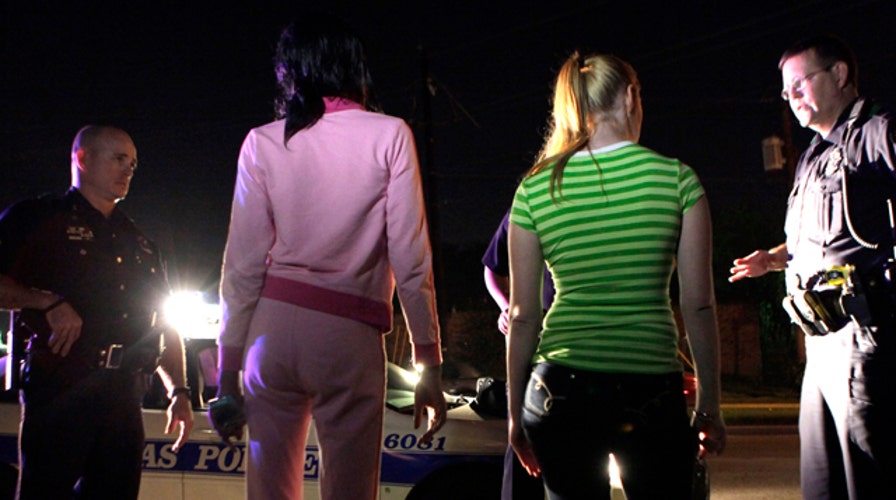Parents selling children for sex and money, report says
Kyle Rothenberg takes a look at a study showing couples in Mississippi forcing their offspring to engage in sexual activities to pay for rent and drugs
At least 90 children in central Mississippi are victims of child sex trafficking and many are sold for money and drugs by their own parents, according to an alarming new study.
The report, released by Beautiful Ones Ministries and Belhaven University, focused on four counties in the Jackson area with interstates connecting from all directions, making it a central “hub” for sex trafficking in the southeastern U.S. The authors found that trafficking of relatives is frighteningly common, with primary caretakers allowing pedophiles to use children for sex in exchange for money, drugs, or shelter.
In one shocking example, a married couple sold their daughter for $5,000 to a truck driver in another state, according to Sandy Middleton, director of the Mississippi Center for Violence Prevention, who said the girl escaped at a truck stop in Jackson after the exchange.
The study found Mississippi’s poverty, education gaps, and family structures create a high risk situation in the state and a “cultural norm” of exploiting children and youth. The victims are not getting the help they need due to inadequate funding, education, awareness and a lack of coordination between various agencies.
Middleton agreed.
"There have been a couple successful prosecutions so far, and we'll see more as law enforcement becomes more trained to recognize human sex trafficking," said Middleton. Specific ways how law enforcement can fight against the illegal trading is still being discussed.
Conservative estimates by the U.S. Department of Health and Human Services indicate that as many as 400,000 American children are victims of sex trafficking each year, usually starting when they are between 12 to 14 years old.
Sex trafficking is part of a larger illegal industry of forced labor at an international level. The International Labor Organization reports the forced labor industry generates $150 billion a year, and more than 20 million people are victims across the globe. A quarter of those are estimated to be children, reports the ILO.
"Human sex trafficking is one of the fastest growing criminal enterprises in the world," said Rusty Barnes, executive director for the Mississippi Office of Homeland Security. "It's more than a $9 billion business in the U.S. alone."
A National Human Trafficking Resource Center hotline, operated by Polaris, received about 21,000 calls and reported more than 3,000 sex trafficking cases last year in the U.S. Polaris' spokesman Brandon Bouchard said human trafficking is getting worse.
"Each year we've seen an increase in the number of reported cases and calls we get, and that's across the board for the entire United States," Bouchard said, adding that victims do not always call for help for a variety of reasons.
"Traffickers, pimps, or the person controlling the [victim] often uses not only physical threats, but psychological threats to keep them from talking," he said.
There are misconceptions about trafficking and Hollywood's image in the movies and on television is different from reality, says Jayne Bigelsen, director of anti-human trafficking initiatives at Covenant House International. "From watching movies like 'Taken,' you might picture a stranger kidnapping someone. But close to 40 percent are family members doing the trafficking."
Non-profit organizations across the country are stepping in to help. Bigelsen pointed out how the Covenant House is one of many groups who provide support for trafficking victims.
"I've talked to hundreds of victims over the years, and when I asked them what's the number one thing that could have prevented this, they say a place to stay," said Bigelsen.
The Covenant House provides shelters in many cities throughout the country and provides a hot meal, warm shower, and clean bed to those in need.
If you believe you have information about a potential trafficking situation, the National Human Trafficking Resource Center recommends calling their toll-free hotline at 1-888-373-7888 and are available 24/7. All reports are confidential and callers may remain anonymous, according to NHTRC.


